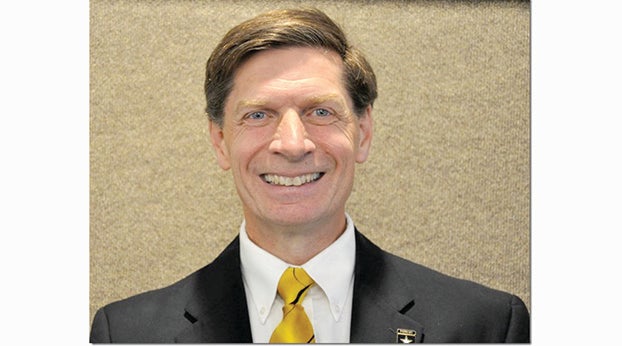Resurrection disciples – Getting in shape
Published 7:20 am Tuesday, April 27, 2021

- Albert Earley
|
Getting your Trinity Audio player ready...
|
How’s your weight and physical fitness? The year of quarantine has really been hard on our physical health. How’s your faith? During quarantine the statistics on divorce, abuse, addiction, depression, and suicide have sky-rocketed. These grow out of problems with spiritual weakness which would indicate a lot of people are struggling with their faith. I have the solution for getting in shape physically and spiritually at the same time:
Fasting! Please don’t stop reading.
What is Fasting? Making a sacrifice for Jesus that you do not have to make, which draws you closer to Him. People usually fast a certain number of meals over a specific number of days, but you can fast many different things: media, screens, a specific food, or an activity. When John the Baptist’s disciples saw that Jesus’ disciples didn’t fast they asked Him about it. Jesus responded, “How can the guests of the bridegroom mourn while he is with them? The time will come when the bridegroom will be taken from them; then they will fast” (Matthew 9:15). Perhaps it is time to start fasting as Jesus said His disciples would do for weight and spiritual reasons.
“The Didache” (Didakhé) is a first or second-century document outside the New Testament that relates to us the teachings of the early church. This document “prescribed two fast days a week: Wednesday and Friday.” For early Christians; this was seen as a regular part of daily discipleship. I thought I was doing well fasting one day a week!
John Wesley sought to revive the teaching of “The Didache” and urged early Methodists to fast on Wednesdays and Fridays. He felt so strongly about this matter that he refused to ordain anyone to the Methodist ministry who did not fast on those two days. Matthew Henry said, “Fasting is a laudable practice and we have reason to lament that it is generally neglected among Christians.”
Hudson Taylor, the great missionary and founder of China Inland Mission, said, “In Shansi I found Chinese Christians who were accustomed to spend time in fasting and prayer. They recognized that this fasting, which so many dislike, which requires faith in God, since it makes one feel weak and poorly, is really a Divinely appointed means of grace. Perhaps the greatest hindrance to our work is our own imagined strength; and in fasting, we learn what poor, weak creatures we are, dependent on a meal of meat for the little strength which we are so apt to lean upon.”
Discipleship Journal published an article called, “Confessions of a Reluctant Faster.” The author mentioned how God impressed upon her the need to pray and fast for a woman in her small group deeply involved in New Age spirituality. She didn’t like the idea of fasting, and she didn’t really like this woman either. She was pushy, bitter, and involved in her small group for social, not spiritual reasons. But God showed her she was in a spiritual battle, which required spiritual weapons. So she found one other person in her group (for accountability) and began fasting and praying one lunch period a week.
She writes of her fasting experience, “When I feel the pangs of hunger, I remember her loneliness and her spiritual hunger. When I long for a Twinkie, I realize why she fills her life with false-god junk. Emptiness cries out to be filled with something, anything. When I don’t join others around the lunch table, I consider Sherri’s great isolation from God and people. None of this depth existed until I began fasting.” As the two fasted they saw God making changes in the woman’s life. Fasting didn’t just change the situation, it changes us and our view of others.
There is nothing we can regularly do as Christians that will draw us closer to God than fasting. Like an athlete who trains by focusing on the fundamentals to get out of a slump, Christians can turn to fasting as a fundamental spiritual discipline to sharpen our faith. Before Jesus’ resurrection, His disciples were confused, concerned about the cares of the world, and weak in their spiritual disciplines. After the resurrection, they became courageous disciples who did whatever it took to grow in their faith, including lots of fasting and prayer.
Thank you for reading this whole article. Some probably stopped when they found out it was about fasting. Now that you have read this will you accept the challenge and make some fasting sacrifice to remind you of the great sacrifice Jesus has made for you? Can it be something you fast regularly that includes a time of prayer as well? I guarantee it will sharpen your faith!
To find out more about Al Earley or read previous articles, see www.lagrangepres.org.




